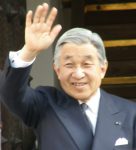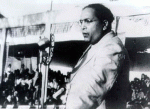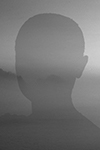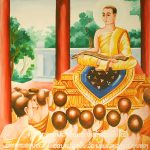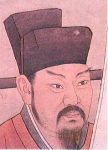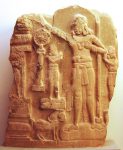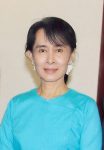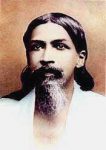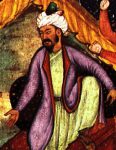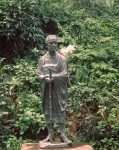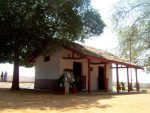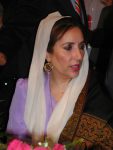Mughal Emperor of India, celebrated Muslim military leader, unifier of India. He encouraged learning and knowledge, outlawed slavery, and promoted religious tolerance.
Emperor of Japan. He "democratized" the imperial family by attending a school, marrying a commoner, and pursuing interests in science and music.
Political leader. A member of the "Untouchable" caste, he became their leader and exponent. He also played an important role in drafting the Indian Constitution and became a convert to Buddhism before his death.
Novelist. His work depicted the conditions of the very poor in India.
Cousin and follower of the Buddha. She helped establish a Buddhist order for women.
President. Her husband, Benigno Aquino, devoted his life to opposing the massively corrupt dictator of the Philippines, Ferdinand Marcos. He was imprisoned, exiled, allowed to return, but then assassinated as he stepped off the plane at Manila Airport. His widow Cory, who had no experience in politics, even more courageously assumed the leadership of the anti-Marcos movement, claimed election to the presidency in 1986 despite massive vote fraud, and soon drove Marcos and his proverbially greedy wife Imelda out of the country.
Mauryan King of India. After a conventional, ruthless, and successful military career dedicated to the pursuit of power and conquest, Asoka unexpectedly changed course. He converted to Buddhism and dedicated the rest of his life to useful public works and especially to the propagation of principles of non-violence, toleration, kindness (especially to slaves and inferiors), generosity, and charity collectively referred to as dhamma.
Asoka's new philosophy was circulated throughout the kingdom as a series of Edicts which were inscribed on large granite stones, some of which have survived.
Co-founder and leader of the National League for Democracy in Myanmar (formerly Burma). Repeatedly arrested by a succession of repressive regimes, and even denied visits by her husband and sons, she emerged as a global symbol of human rights and freedom, and won the Nobel Peace Prize in 1991.
Philosopher. His life and thought expressed the value of yoga, mysticism, the attainment of a higher consciousness, and the communal life at his ashram.
The first Mughal (Muslim) emperor of North India. He is primarily associated with conquest, but to a lesser degree with patronage of the arts, and is perhaps best remembered for the religious toleration that he fostered.
Philosopher. He is said to have written The Vedanta Sutra, a key text of the Vedanta School (one of the six philosophical schools) of Hinduism. For more on Vedanta, see Sankara, Ramanuja, and Madhva.
Prime minister. After her husband was assassinated, she took his place as head of the Freedom Party. She was elected prime minister, the first woman in world history to hold this office, and was elected again following independence. Like Cory Aquino of the Philippines, who came later, her career expressed immense courage as well as women's rights.
Poet. He was a lover of nature and a brilliant inventor and practitioner of the present form of traditional Japanese haiku. Each poem consists of seventeen syllables divided into three lines of five, seven, and five syllables, and must appeal to two of our five senses or to one of our senses and our feeling of movement. In his famous walk around Japan, he approached his experiences from a Zen Buddhist perspective, and described them in exquisite prose and verse.
Poet and thinker. He wrote important works on ethics and conduct as well as on Hindu religious themes and on language.
Speaker and writer. He especially supported the distribution of land to peasants, for both economic and spiritual reasons.
Rebel. A Sikh separatist, he was killed by Indian troops.
Prime minister. A graduate of Harvard, she courageously returned to Pakistan after the execution of her father.

